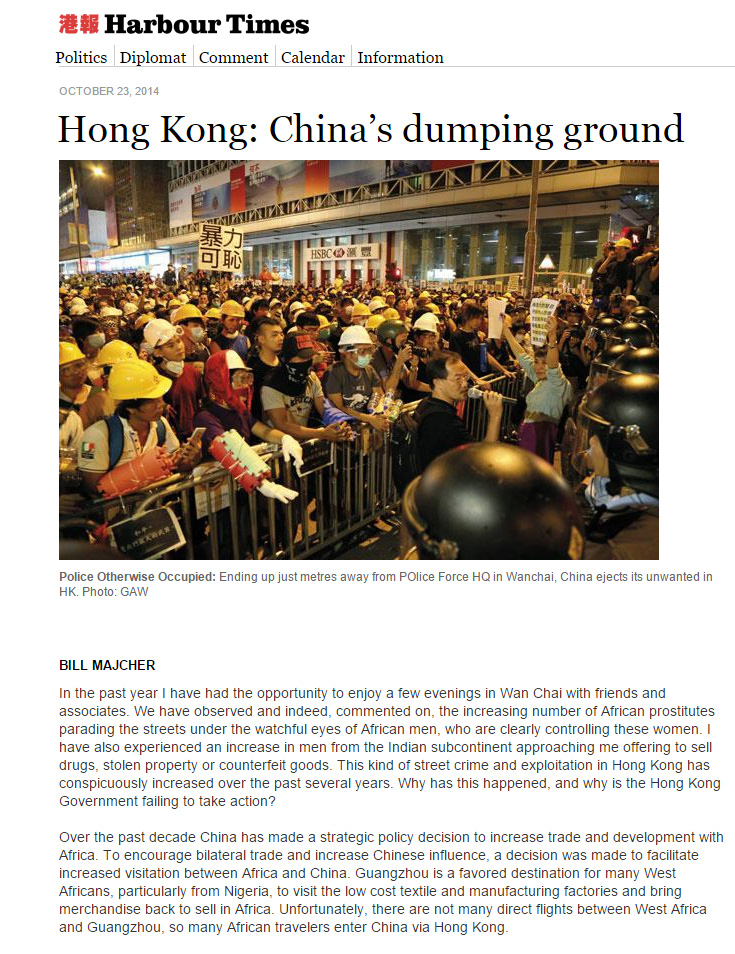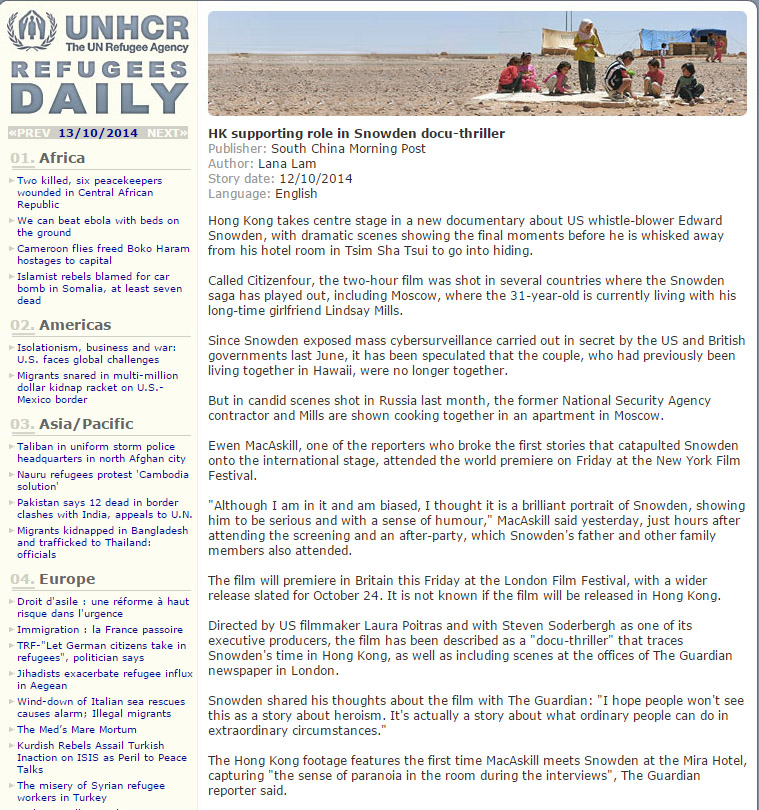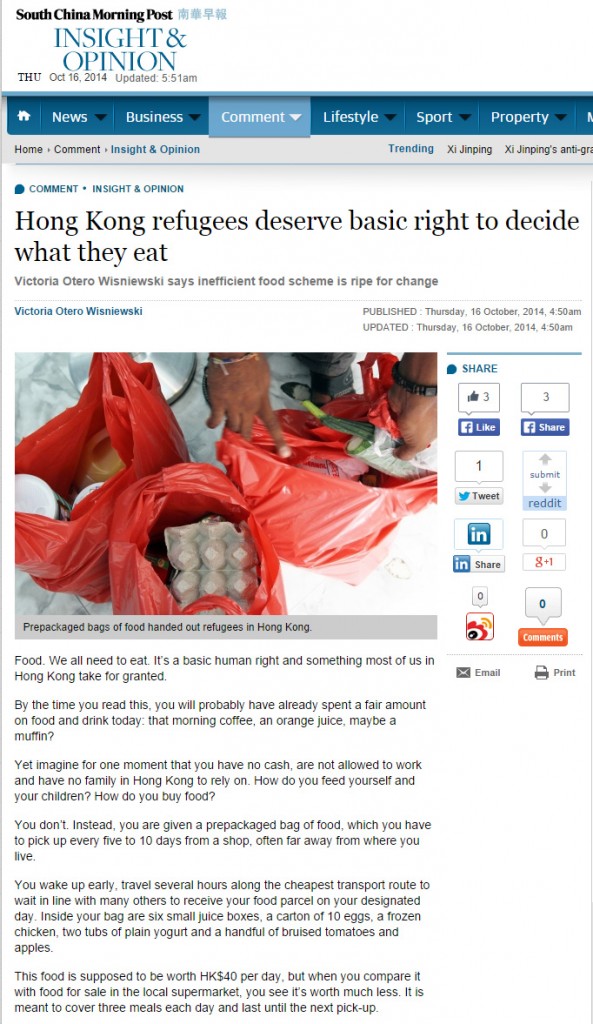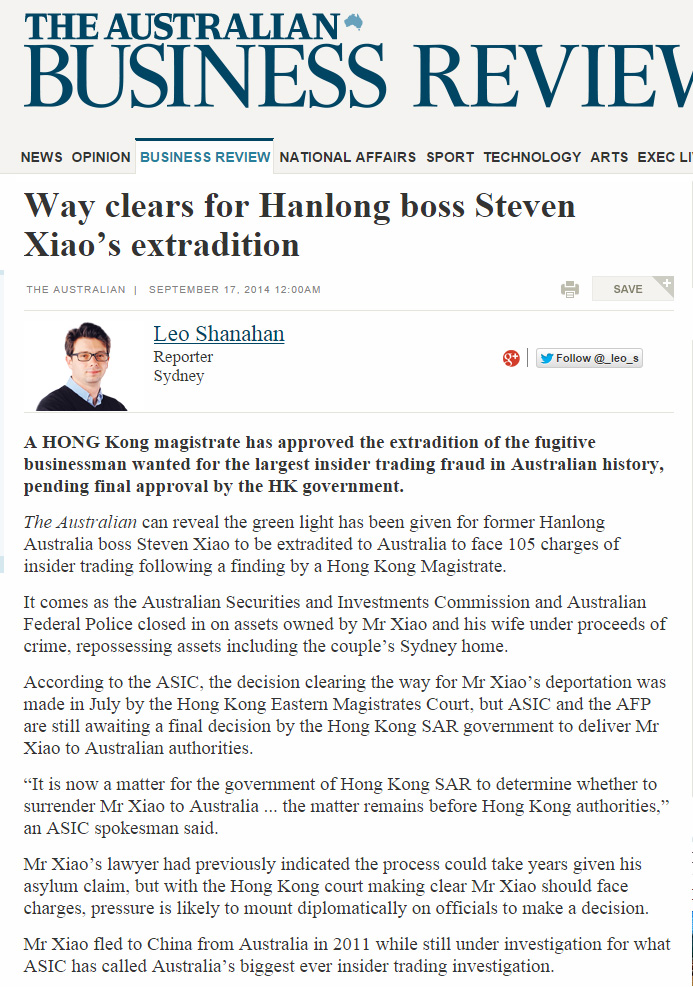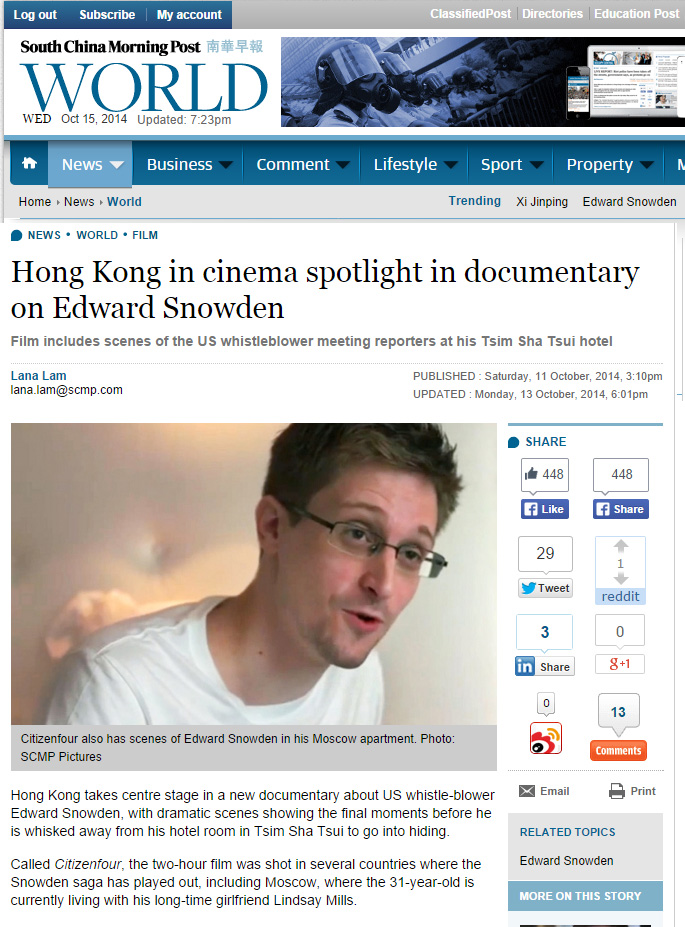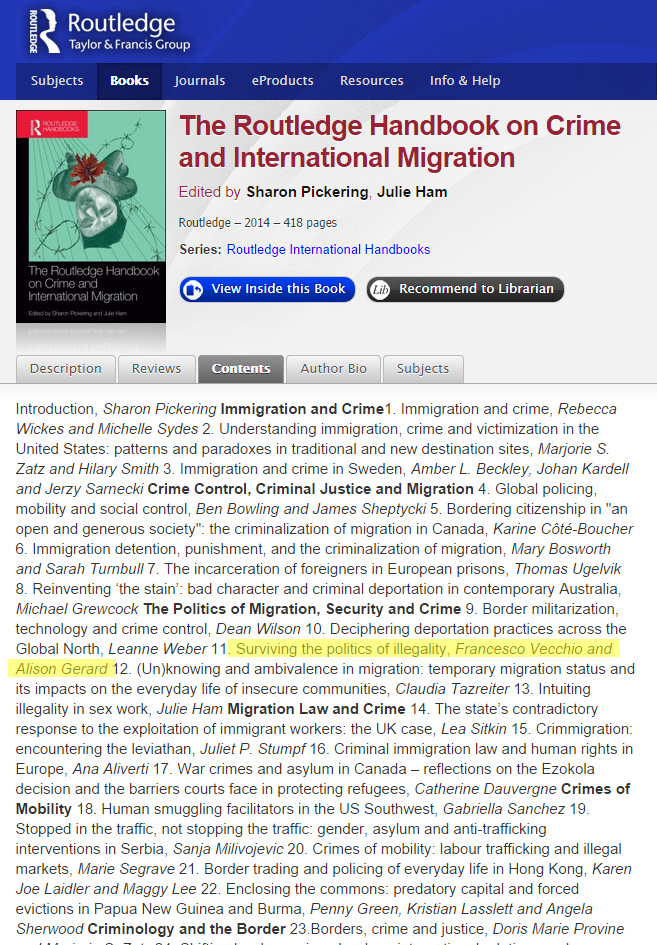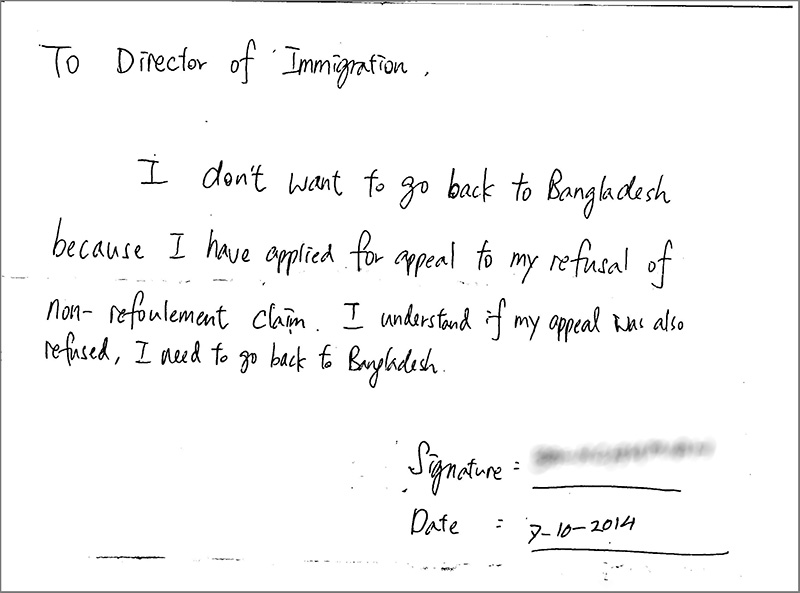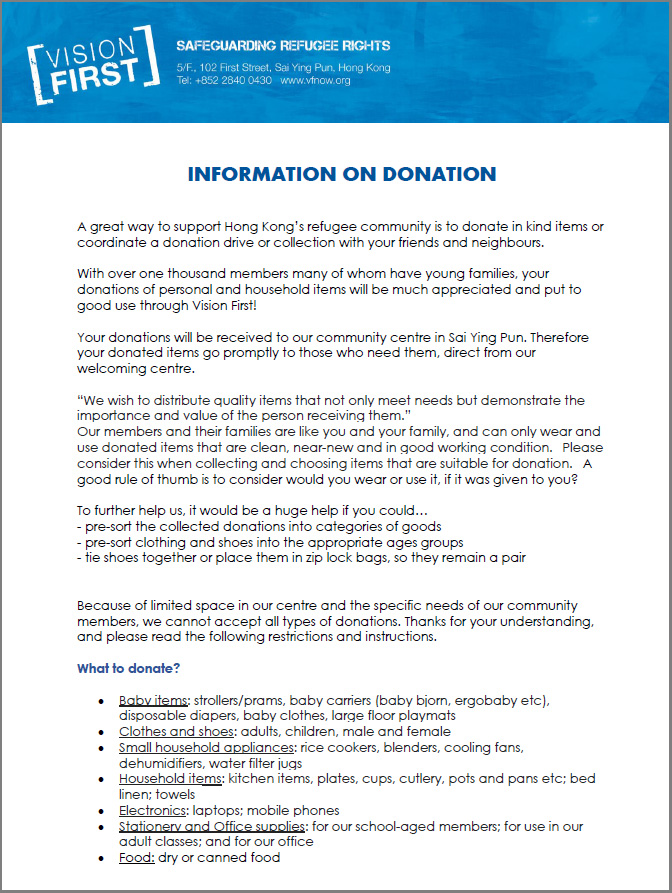Who profits from the Revolving Door Scam?
Oct 24th, 2014 | Advocacy | Comment
The refugee community was recently buzzing on social media over a Facebook page that draws the spotlight of public scrutiny on the darker side of the trade in emergency food rations for cash. It is indeed widely known that refugees sell all or part of their rations for cash to buy culturally appropriate groceries and meet pressing financial needs disregarded by government assistance. It is also known that some may steal for the same reason.
However, it is unlikely that the individual in the Facebook page is aware of his alleged exploits going viral on social media. It is further unlikely that he boasted about it in the first place. The posts expose a reality that exists, although its contours are not always well defined. Interestingly, it reveals very convincingly the capacity of refugees to seize out of necessity the few opportunities that arise from a questionable welfare system. It might be illegal, yes. But no one seems to care.
Indeed this Facebook page might be the work of a person whose business was in decline and attributes his or her failure to an individual who might or might not be involved. A message dated 9 October 2014 claims, “I am proudly announce that i am one the Top Refugee who supply to all Major Provision store in hong kong, my customers are [list deleted] And Many more and also Thousand of customers who buy from Meat, Rice, Oil, Grocery, if anyone looking to buy cheap Refugee food, please contact with me”.
Legally speaking, refugees may eat, dump or trade food rations and do not break the law by reselling them, although the practice is understandably discouraged. In reality, we observe that, while such activities have been going on for years, nothing is done to address the underlying causes that sustain them. The trade appears to be condoned, or at least accepted, as a way for refugees to raise desperately needed cash. It was an open secret even before these images circulated.
Vision First calls this operation the “Revolving Door Scam” (first reported here on 3 April 2014) in reference to the re-circulation of food rations that are traded at half of market value until somebody takes them home to eat. The scam is encouraged by substandard quality, because the least attractive or edible groceries are, the more likely it is that refugees will sell them. The government sponsors of this operation should calculate the waste generated by a scam predicated on fundamentally flawed assumptions about what refugees need and what they eat.
Readers may draw their own conclusion on the masterminds behind the Revolving Door Scam that Vision First estimates to channel about 16 million HKD yearly into the pockets of cash-strapped refugees. In a convoluted fashion it has effectively become the ‘Cash-for-Food Program’ resisted by the government ostensibly to prevent refugees from indulging in vices. A refugee astutely suggested that since money is prioritized to activate mobile phones (an Immigration requirement to be released from detention), the scam ensures 24-hour traceability by authorities without the expense of an ankle-monitor program.
Finally, the broader impact of the scam on neighbourhood economics should not be overlooked as discounted rations cause the prices of foodstuffs such as rice, flour, sugar, ghee and oil to plummet to one-third of retail value. Not only are grocery shops, restaurants and canteens purchasing these cheap supplies, but it is reported that low-income families have become avid consumers for the savings achieved. Alarmingly, such end-user demand is growing and encouraging the trade.
Considering that thousands of these commodities are traded daily at heavily reduced prices, it is unsurprising that troubling ripples are causing unexpected consequences. It would be interesting to investigate not only who benefits from the Revolving Door Scam, but also why so many people appear willing to turn a blind eye despite it having been an open secret for many years.
Whose wheels are greased by this scam and why is it tolerated?

Digging beneath the issue of food value
Oct 22nd, 2014 | Advocacy | Comment
The problems plaguing the food distribution to refugees were raised again at the Refugee Union’s bi-monthly meeting on 20 October 2014. Refugees suffer a grim, insurmountable reality despite the promise of a fair asylum system made by this world-class city.
The government takes a firm stance in ensuring that stringent measures make Hong Kong inhospitable to those seeking asylum with the goal of deterring others in their footsteps. It is well-known that refugees are prohibited from working while forced to make ends meet with 1500$ in rent assistance and 1200$ in food rations. But do they even receive this little?
The problems relating to the food distribution system are less quantitative (Are 40$ a day enough to eat?), than structural (Do refugees receive 1200$ a month in groceries?) and administrative (Why do distribution failures persist?). Members of the Refugee Union expressed strong discontent at the in-kind food program that fails to deliver the value, quality and variety claimed by the authorities.
It is widely reported that law enforcement agencies are looking into this problem and have yet to either confirm or deny claims as researched and reported by the media, including South China Morning Post and Metro Daily. And yet refugee lament that their monthly food collections are still largely worth less than 1200$ a month. Has the government retreated from its responsibility to monitor and control the refugee food program?
Further, complaints were raised about infants who do not receive enough milk formula and some toddlers who are not provided with solid food at eighteen months of age. Mothers’ pleads to case workers are ignored month after month and desperate parents are compelled to beg for assistance when fair assistance is sidestepped without reasonable explanation.
Following recent reports that the food program contracts were renewed for nine months (possibly to account for three month’s investigation), it is apparent that the government has no plans to improve the system by providing refugees with cash, or alternatively issuing coupons. Without a new service tender, the current inadequate program will continue till mid-2015.
On the face of it, the absence of noticeable improvements seem to suggest that the government is satisfied with the implementation of in-kind food distribution to the refugee community. The Refugee Union exposed malpractices that raised serious concerns, but after the noise died down questions were met with silence and accusations were swept under the thick carpet of government bureaucracy, some might say, indifference.
Vision First is concerned that salient answers may be hidden in the contract between the Social Welfare Department and ISS-HK for welfare provisions to the refugee population. Despite repeated request by the media and several lawmakers, this key contract remains a government secret, as if it were a matter of national security, kept from the public eye for reasons that fly offensively in the face of transparency and accountability.
In light of the above, digging beneath the issue of food value uncovers problematic issues that, in our view, cannot be resolved without dismantling the entire refugee welfare system to implement programs that are based on wellbeing not deterrence, on legal concerns not immigration policies, on social justice not criminalization, on dignity not immiseration.
While injustice is the norm for refugees, the question we should ask is, why do refugees’ complaints so often fall on deaf ears? Who benefits from these arrangements?
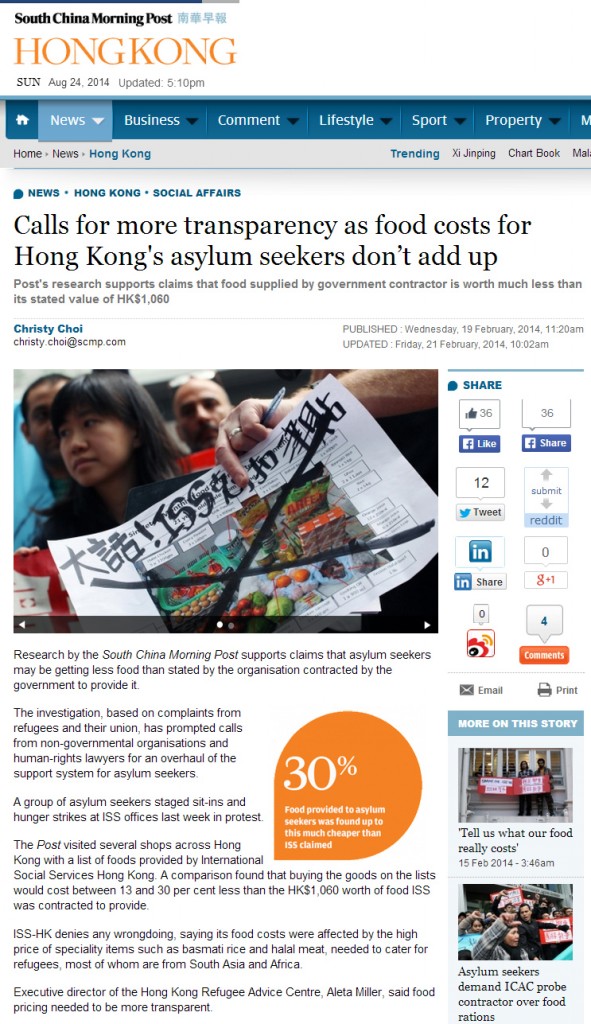
VF Reports – Is this rendition?
Oct 10th, 2014 | Advocacy, Immigration, VF Report | Comment
Vision First reports the case of a Bangladeshi refugee who sought asylum in 2008 and is still genuinely fearful of the danger he would face should he be returned to his country. His non-refoulement claim was rejected at first instance in September 2014 after more than six years of deliberation. The claimant is aware that Hong Kong has a perfect zero percent acceptance rate of Bangladeshi refugees since 1992. (Compare yearly acceptance rate of >40% in Australia)
On 7 October 2014, on routine reporting to the Immigration office in Mataukok, the claimant was summoned to an interview room where he was warned of imminent removal despite having filed an appeal with the Torture Claim Appeal Board within the allocated time. The claimant stated emphatically that he spoke little English and had trouble understanding what was being said to him. Of significance, neither a Bengali interpreter, nor a duty lawyer were present.
It is unclear what was discussed during the interview. The claimant reports that significant pressure was exerted on him to sign a document the significance of which he did not comprehend. While he had not requested to voluntarily depart Hong Kong, the Immigration officer handwrote a notice that he was made to sign. The document stated, “I understand if my appeal was also refused, I need to go back to Bangladesh”. Only after signing the document was the claimant allowed to leave the room.
The claimant warned the officer that his life would be in serious danger if he was returned to Bangladesh where political enemies were still searching for him eight years after he fled to Hong Kong. He first politely requested a photocopy of the notice and explained “because I don’t know what is says”. But a shouting match followed in which the officer refused to provide a copy and the claimant refused to leave. Eventually the officer left the interview room and returned five minutes later with a photocopy of the document.
On 9 October 2014, the claimant registered at Vision First seeking assistance against what, in our view, amounts to de facto rendition – the practice of handing over individuals from one jurisdiction to another with questionable consideration of the legal process. Facts lead us to believe that the notice was prepared as an acknowledgement and, by implication, a consent by the claimant to be removed to Bangladesh after his appeal will be rejected.
While circumstances surrounding this event are unclear, the claimant reports being intimidated by the conduct of the Immigration officer and being fearful of detention pending the outcome of his appeal, whereby he would have been denied an opportunity to apply for a judicial review at the High Court.
Vision First never before sighted such a handwritten notice which is inconsistent with domestic and international legal principles. It purports to represent an unconstrained declaration by a refugee who seems unwilling to pursue further legal remedies after the likely rejection of his appeal case, but actually its production is both sinister and disturbing. The notice is manifestly neither a legal document, nor a standard Immigration form. Vision First emailed its concerns to the Immigration Department and will monitor the liberty of this claimant.
Refugees are strongly urged not to sign documents from government departments, Immigration in particular, which they do not fully understand and for which legal advice and professional interpretation was not provided. If in any doubt, the correct procedure is to take the documents away to seek independent legal advice before signing them.


